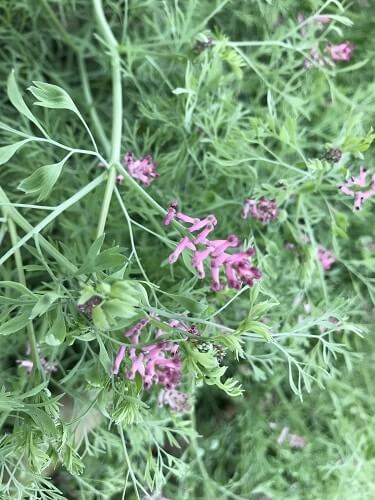Ayurveda is an Indian term that the western world is finally beginning to pick up. A Sanskrit term made up of the root words Ayur (life) and Veda (science or knowledge), it stands for the Science of Life, and is a body of knowledge about health and wellbeing.
For a practitioner and teacher of Ayurveda of 40 years, it is a source of great satisfaction for me to see that non-Indian communities are looking to it as a gentler way of treating diseases.
In an applaudable effort, the Government of India’s AYUSH Ministry has sought recently to propagate the research and study of Ayurveda.
Here in Australia, an Academic Chair in Ayurveda is soon to be established at Western Sydney University. This appointment, it is hoped, will open a new vista in the uptake of Ayurveda in Australia, and in providing evidence-based research to manage the fast-emerging lifestyle and autoimmune diseases.
Interestingly, the WSU announcement has an interesting parallel with the very origins of this ancient system of medicine.
Ayurveda originated a few thousand years ago in India when people began living in communities and took to farming (organic of course), including poultry, dairy, trading of grains, legumes, and animal food. That changed lifestyle heralded the emergence of diseases thus far unknown. To seek out a solution for their increasing health problems, the learned sages of that era gathered in the Himalayas in a conference of sorts. The solution that came out, was Ayurveda. There is documented reference to this meeting of the learned minds in a classic on Ayurveda, the Charak Samhita, considered as the Bible of Ayurveda.
We find that in the present era, the lifestyle has tremendously changed yet again, and a long list of serious lifestyle and autoimmune diseases like heart attack, brain stroke, cancers, diabetes, thyroid disorders, dementia, etc. have popped up. In this devastating health scenario, there is a greater role and importance of Ayurveda to provide solutions to these diseases.
As a health care system, Ayurveda looks at the disease and its treatment from a holistic viewpoint. Disease is considered largely as stemming from unhealthy food and lifestyle. Consequently, the remedies advised are the correction of the unhealthy food and lifestyle responsible for diseases.
Elaborate information is listed in Ayurveda about different foods and their health benefits. It prescribes ideal foods to be consumed by different body types, as well as in diverse seasons, for better health. For the immediate treatment of diseases, Ayurveda explains the health benefits of around 500 plants of medicinal importance.
It might be interesting for you to learn that many commonly used medicines have herbal origins. Aspirin is derived from the herb willow bark (Salix alba). Reserpine, an alkaloid for high blood pressure, comes from the plant Indians call sarpgandha (Rouvolfia serpentine). Digoxin, a drug for heart failure, is derived from the plant Digitalis, and the expectorant bromhexine is derived from the plant Adusa or Adhatoda vasica.

Detoxification and rejuvenation of the body is one of the core principles of treatment in this medical science. Five ways of doing this are prescribed, called Panch-karma where Panch means five and Karma stands for procedures.
Bushwalking in NSW, I have come across dozens of Ayurvedic medicinal plants growing wild. These have included Bhumiamla (Phylanthus nururi), Gokshru (Tribulus terristris), Punarnava (Boerhevia diffusa), Shankhpushpi (Convolvulus prostrates), and Pitpapra (Fumaria palviflora). These are useful for treating viral infections, prostate gland enlargement, kidney diseases, forgetfulness, and fatty liver respectively. These plants – which might well be considered weeds here in Australia – have great demand in Ayurveda and the phytopharma industry.
The specific medicinal properties if these and other herbs come not only from the ancient texts, but also from modern-day evidence-based research ongoing in Ayurveda universities and institutes in India. Based on these studies, Ayurvedic medicines are manufactured following Good Manufacturing Practice (GMP) norms. Collaborative research with the western world will surely be a step forward in this direction in the wellness sector. It will also solve some of the misconceptions regarding the use of metals in Ayurveda exaggeratedly talked about by the modern pharma industry.

The modern western system of medicine has indeed done marvels in the field of surgical management and emergency medicine. However, the incidence of lifestyle and autoimmune diseases is fast increasing. The irony is that research in the pharma industry is commercial, and the new molecules discovered are prescribed for life. This puts a great burden on societies and governments. The Ayurvedic approach for the treatment and management of diseases, on the other hand, is holistic, and focuses on lifestyle as well as food habit correction, and green medicine.
In the changing scenario concerning health, when the world is increasingly considering plant-based, paleo, gluten-free and lectins-free diets, there is a great role for Ayurveda to play to provide health and wellness through holistic medicine.
WSU’s first step in embracing Ayurveda must be applauded: it suggests that complimentary medicines and alternative practices do have a place in healthcare today, and can intersect successfully with western medicine.
The writer Prof. Raj Kumar Sharma is former principal and assistant director, Dayanand Ayurvedic College and Hospital in Jalandhar, India. He is currently settled in Sydney.
READ ALSO: The ultimate goal of meditation is Nirvana
Link up with us!
Indian Link News website: Save our website as a bookmark
Indian Link E-Newsletter: Subscribe to our weekly e-newsletter
Indian Link Newspaper: Click here to read our e-paper
Indian Link app: Download our app from Apple’s App Store or Google Play and subscribe to the alerts
Facebook: facebook.com/IndianLinkAustralia
Twitter: @indian_link
Instagram: @indianlink
LinkedIn: linkedin.com/IndianLinkMediaGroup






